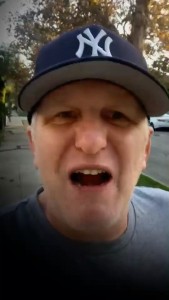One Night in Miami sent your editor back to William Klein’s 1964 documentary, Cassius the Great (which Klein would go on to re-edit later with new footage as Muhammad Ali, The Greatest). The following bits from the movie are way less than a perfect compaction, but the opening scene, which limns the Louisville syndicate that once “owned” Ali, is for the Ages. B.D. (H/T Jeff Kreines)
Click Read More to see on a bigger screen.

